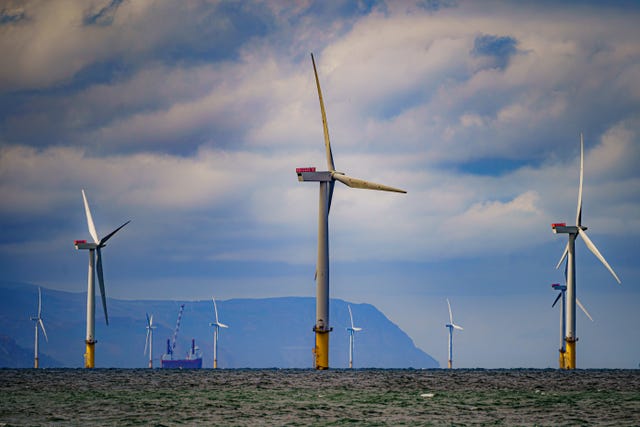All levels of government need to improve capacity in the consenting process for wind projects, a report on the UK’s clean power ambitions says.
The IPPR report calls for a four-nation approach to the UK’s wind energy future.
With a target of achieving clean power by 2030, the report noted 95% of the pipeline of onshore wind projects are in the devolved nations, as well as around 30% of offshore projects.
Organizations
Topics
While the pipeline of wind projects is considered broadly adequate to meet the 2030 target, previous projects in Scotland have shown an “attrition rate” of around 30% to 40% – where the finished development has less capacity than originally envisaged.
The IPPR report said there is a “lack of capacity within all tiers of government involved in the consenting process for wind projects, which slows project delivery and hampers the pipeline potential”.
It recommended collaboration with the devolved governments in new renewables organisations such as GB Energy.
The report said: “Our core recommendations relate to the need for collaboration and involve the devolved administrations and the UK Government working closely together.
“Fortunately, all indications are that the new UK Government and the devolved governments have made a good start and every UK nation has its own targets that recognise the opportunity to drive new jobs and investment into its national economy.

“Working relationships are also close and productive at both administrative and political levels.”
Josh Emden, a senior research fellow at IPPR, said: “The energy system does not stop at the borders of countries and achieving a clean power system by 2030 will require unprecedented co-ordination across the UK’s nations.
“There are positive early signs of more collaboration between all four nations.
“To accelerate wind deployment and maximise local economic benefits, this will need to continue across both reserved issues like support for ports, grid upgrades and local manufacturing, and devolved issues like planning and skills policy.”
Dave Hawkey, senior research fellow at IPPR Scotland, added: “Scotland’s leadership in onshore wind deployment offers valuable lessons for other nations.
“It’s crucial we adopt a unified approach to ensure equitable development and maximise benefits for all regions.”
A spokeswoman for the UK Department for Energy Security and Net Zero said: “Onshore and offshore wind are crucial to making Britain a clean energy superpower, boosting the UK’s energy independence and protecting billpayers.
“That is why we have taken immediate action in deploying onshore wind by overturning the de facto ban in England, and we achieved a record-setting round of renewables projects with enough power for the equivalent of 11 million homes – essential to give energy security to families across the country.
“We agree our planning system needs reform to deliver clean power by 2030 – which is exactly what we are doing. We will work with industry to rewire the nation and make this once-in-a-generation upgrade of our energy infrastructure happen.”
A Scottish Government spokesperson said: “Scotland has extensive renewable generation capabilities with which to accelerate the just transition to net zero by 2045 – and our Fourth National Planning Framework (NPF4) makes clear our support for all forms of renewable, low-carbon and zero emission technologies.
“The Scottish Government is working with the UK Government on streamlining the consents and licencing processes.
“We are clear that increasing renewable energy must deliver real benefits for the people of Scotland and support our ongoing efforts for a just transition and to reach net zero by 2045.”













